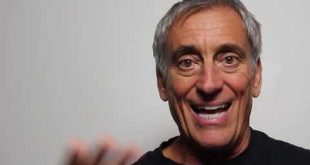This is a useful post, but it errs inso far as it implies that reducing the power of the CCP and going to a more liberal model would reduce corruption. This has not been the case in the West, where there is also a symbiotic relationship between politicians and business and finance. This doesn't change by making what is fundamentally unethical legal, and corruption is also invited by a double standard of justice, lax oversight, and penalties that do not deter but rather are booked as...
Read More »“Avoiding Plutocracy Would Require a Political Change”: Branko Milanovic on the Future of Capitalism — Asher Schechter
In an interview with ProMarket, CUNY Graduate Center economist Branko Milanovic discussed the differences and similarities between US-style and China-style capitalism and explained why, without major reforms, liberal capitalism could lead to plutocracy. "Could lead" or "has led"? While I generally like Branko Milanovic's work, I think his analysis of "capitalism" is fundamentally misguided since it is based on a Western-biased view of economics and political theory. So-called...
Read More »Trump promotes private Medicare coverage, drawing contrast with Democrats’ health care plans — Rachel Roubein
Are you ready for limited provider networks?PoliticoTrump promotes private Medicare coverage, drawing contrast with Democrats' health care plans Rachel RoubeinSee also Medicare Advantage plans are also a terrible waste of public dollars. They have overcharged Medicare by $30 billion in the past three years alone. Angry BearTrump’s Executive Order is Backdoor Privatization of Medicare
Read More »The German Problem — Heiner Flassbeck
German mercantilism, deficit hysteria and debt phobia compounded by economic ignorance and the preference for theory over data. From some reason through, Heiner Flassbeck does not mention the ruinous effect of adopting the euro as the European common currency, which underlies this entire issue.Flassbeck EconomicsThe German Problem Heiner Flassbeck
Read More »“We have to get rid of the babies!”
Wow! nice platonistic thesis from this nut-job... More hijinks from female "Climate!" nutters this week...One of Ocasio-Cortez's constituents loses her mind over climate change during AOC's townhall, claims we only have a few months left: "We got to start eating babies! We don't have enough time! ... We have to get rid of the babies! ... We need to eat the babies!" pic.twitter.com/uVmOnboluI— Ryan Saavedra (@RealSaavedra) October 3, 2019
Read More »Military Links — 3 October 2019
Reminiscence of the Future"Revelation" Mode.Andrei Martyanov RTMoscow is helping Beijing build missile-attack warning system that only Russia & US have – Putin The Unz ReviewNew Weapons and the New Tactics Which They Make Possible: Three Examples The Saker The GrayzoneElite UK military unit secretly trained by leftist regime-change advocate Gilbert Achcar and other academics Ben Norton Zero HedgeMartial Law Unfolding In Iraq: 30 Protesters Shot, Internet Blackout, 24-Hour...
Read More »Market will see a little bounce here
Bearish monetary conditions abate temporarily
Read More »Spreading the Gospel of Modern Monetary Theory — Osita Nwanevu
A look at MMT as a social and political phenomenon that is growing. MMT is no longer "just" an macroeconomic theory as the basis for policy formulation. The ball is rolling.The New RepublicSpreading the Gospel of Modern Monetary Theory Osita Nwanevu
Read More »Links — 3 Oct 2019
BruegelThomas Piketty’s New Book: Impressive Research, Problematic Solutions Jean Pisani-Ferry Harvard Business ReviewUniversities Should Be Preparing Students for the Gig Economy Diane MulcahyFast Company35% of the U.S. workforce is now freelancing—10 million more than 5 years ago Jessica KleinProject syndicateThe Asianized World Has Arrived Jonathan Woetzel, a McKinsey senior partner, a director of the McKinsey Global Institute, and co-author of No Ordinary Disruption: The Four Global...
Read More »Macroeconomics in Germany: The forgotten lesson of Hjalmar Schacht — Biagio Bossone, Stefano Labini
As Hitler rose to power, in January 1933 the economic situation in Germany was dire. Stocks of raw materials had been depleted, factories and warehouses lay empty, and about 6.5 million people (about 25% of the domestic workforce) were unemployed and on the verge of malnutrition, while the country was crushed by debt and its foreign exchange reserves approached zero.Yet, from 1933-1938, thanks to Schacht, the economy recovered spectacularly (Figure 1).2 Schacht’s objective to jumpstart the...
Read More » Mike Norman Economics
Mike Norman Economics

